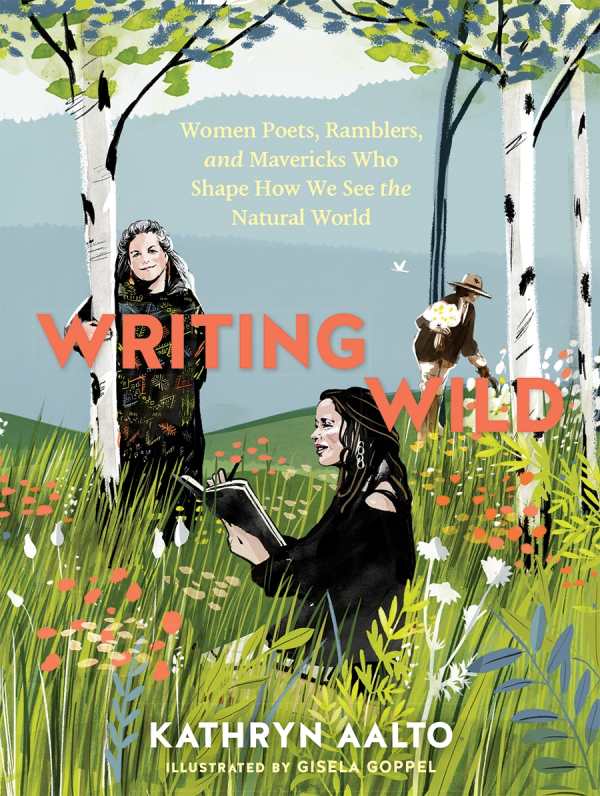Writing Wild
Women Poets, Ramblers, and Mavericks Who Shape How We See the Natural World
Kathryn Aalto’s Writing Wild celebrates the women writers who bring insight, grace, and power to nature writing, their perspectives urgent and necessary. Human survival is linked to the natural world, and Aalto asserts that approaches to nature should not be determined only by “able-bodied white guys.”
Aalto has much in common with the twenty-five historical and contemporary British and American writers whose personal essays are featured in her collection. Her own urge to explore was set free when she moved to England, whose “Right to Roam” laws and ancient footpaths invite hikers to savor the countryside’s sights, sounds, and fragrances, and then pick up a pen and write. Visiting the places that inspired the included essayists, she reveals the natural and cultural background of their work, and “the barriers, biases, and bullying they overcame to write,” creating her own insightful and entertaining travel essay in the process. Portraits of the writers, lists of their works, and brief vignettes about other influential women writers result in a diverse, satisfying overview of women’s perspectives on nature.
Though it is filled with facts, some of them disturbing (“in 1970, one billion more birds flew over the Earth than do today,” for example), the book is not focused on imminent planetary doom, but on relationships, responsibility, and calls for action issued as early as 1850, with Susan Fenimore Cooper’s Rural Hours, and as recently as Elizabeth Rush’s Rising (2018). Also included are essays by Rachel Carson, Mary Oliver, Annie Dillard, and Leslie Marmon Silko.
Writing Wild is an amazing, rich resource that rises above visions of conquest and domination to reveal the possibility of meeting eye-to-eye with wildness, and of being broken open and changed.
Reviewed by
Kristine Morris
Disclosure: This article is not an endorsement, but a review. The publisher of this book provided free copies of the book to have their book reviewed by a professional reviewer. No fee was paid by the publisher for this review. Foreword Reviews only recommends books that we love. Foreword Magazine, Inc. is disclosing this in accordance with the Federal Trade Commission’s 16 CFR, Part 255.

